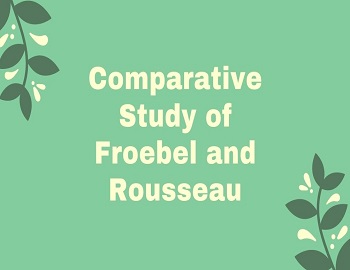Table of Contents
Religious Beliefs in Literate Societies as Studied by Max Weber:
Religion, insofar as it is to be effective either for the individual or for the social group, must be considered within the framework of society. The identity of the religious and the political, as in preliterate societies, is also to be found in the identity of the religious and the economic postulates of a literate society.
The latter variety has been studied by Max Weber in relation to Western and Eastern civilizations. Weber (1958, 1963) studied the major features of world religions: Hinduism, Buddhism, Catholicism, Protestantism, Islam, Confucianism and Taoism, and Judaism. He found that religion restated the basic postulates of culture in new, vivid terms and emphasized them in ritual. Weber had a historical and comparative approach to explaining religious beliefs.
The concept of rationality is the underlying theme of Weber’s sociology of religion as well as the key to the understanding of modern economic activities. His interest in religion arose from, a double source. One was the question of why capitalism had developed in the West, rather than in other cultural areas, such as Asia where there were large resources and educated classes. The other was the question of the status position of different social classes. He proposed the “Protestant ethic” as the right answer to both questions. He argued that Catholicism looked down upon economic activities and held the profit-seeker in low social esteem. Protestantism, on the other hand, regarded all work as a justified “calling”. Let us elaborate.
Work on the Protestant Ethic:
We have mentioned before that Weber analyses the great religions of literate people in relation to economic institutions. He comes to the conclusion that except for Protestantism all the other religions have laid special stress on religious practices. In his book on Protestant Ethic Weber (1930) mentions that Protestantism does not emphasize orthodox religious practices because it gives importance to the materialistic point of view, unlike the otherworldly views in the other religions.
The adherents of the Protestant ethic believe that doing one’s duty means serving God. It emphasizes the importance of time, labor, and money. Owing to these traits some European countries with a large Protestant population witnessed the growth of capitalism.
In this work, Weber holds that the present capitalistic system is based on rationality, savings, time management, competition, and a desire to earn money. He relates this spirit of capitalism to the Protestant ethic. As against this, Weber believes that the religions of the East- Hinduism, Buddhism, Confucianism, and Islam- did not encourage the economic goals and competition which are essential to the development of the modern industrial capitalistic system.
Weber’s Discussion of the Religions of China, India, and Ancient Palestine:
Weber’s discussion of the religions of China (Confucianism and Taoism), India (Hinduism, Jainism, and Buddhism), and ancient Palestine (Judaism) are a continuation of his initial interest in the influence of the Protestant ethic on economic activities. His analysis centered on the relations between religious beliefs and the status and power structure of the groups composing a society. These constitute the outline of the comparative sociology of the great religions.
These studies are governed by certain questions, such as Can one find outside Western civilization a religious interpretation of the world that finds expression in economic behavior which can be compared to the Protestant ethic?
The objective proposed by Weber’s comparative study is to discover the various fundamental types of religious conceptions and the attitudes toward life governed by these religious conceptions.
In the case of the religions of China, Weber is primarily interested in the idea of material rationality which is characteristic of the Chinese image of the world. Material rationality is just as rational in the context of China as Protestant rationality, but it is contrary and unfavorable to the development of typical capitalism.
Parsons (1963) believes that Weber regards Confucianism as less radical than other religions. This religion stresses harmony, traditionalism, and family obligations. This is quite different from the relentless pursuit of profit. Within its special framework, it is a rational doctrine of adaptation to the world.
In the case of the religion of India, Weber observes that a process of rationalization has occurred in the context of a ritualist religion and a philosophy whose central theme is the transmigration of the soul. Weber calls Hinduism a kind of Indian Catholicism that reduces the harshness of the pure Buddhist-type doctrine by supplementing it with a ritual significance of caste observances. He holds that religious ritualism is the strongest principle of social conservation which has hindered the growth of capitalism in India.
Weber regards Judaism the religion of ancient Palestine, as one which blocks the development of inner-worldly asceticism. It especially inhibits this development at the social level because it remains attached to a traditionally defined ethnic community. As Parsons (1963) says, Judaism does not reject the world, but only rejects the prevailing system of social classes.
Weber’s Essay on the Sociology of Religion:
At the outset of this work, Weber (1963) interprets primitive religion in a manner that is very close to Durkheim’s The Elementary Forms of the Religious Life.
He considers the notion of charisma as the major concept in the study of primitive religions. Charisma is the quality that is outside the ordinary and which becomes attached to human beings, for example, as in the case of a charismatic leader.
Weber recognizes that there is no known society without religion. Every society possesses some conceptions of a supernatural order in the forms of spirits, gods, or impersonal forces which are different from and superior to those forces conceived as governing ordinary natural events.
He combines his view of the conceptions of the supernatural with an insight into the symbolic character of supernatural beings and their acts. According to him, the help of the supernatural is sought by the primitives in the interest of everyday, worldly concerns such as health, long life, the defeat of enemies, etc.
In keeping with the 19th-century general intellectual interest in origins and evolution, Parsons (1963) says that Weber’s perspective in the sociology of religion is evolutionary. It is indeed evolutionary, as his sociology of religion does concern itself with the elementary forms of religious life and then the conditions promoting the development of religious belief systems and institutions in various civilizations. From the starting point in the universality of belief in the supernatural, his discussion of the sociology of religion proceeds to a systematic exploration of the directions in which breakthroughs from the primitive religious state can occur.
His primary interest in religion is to locate a source of the principles of social change, and not religion as a reinforcement of the stability of societies. This is the basic difference of emphasis between the sociology of religion of Weber and Durkheim.









Comments (No)